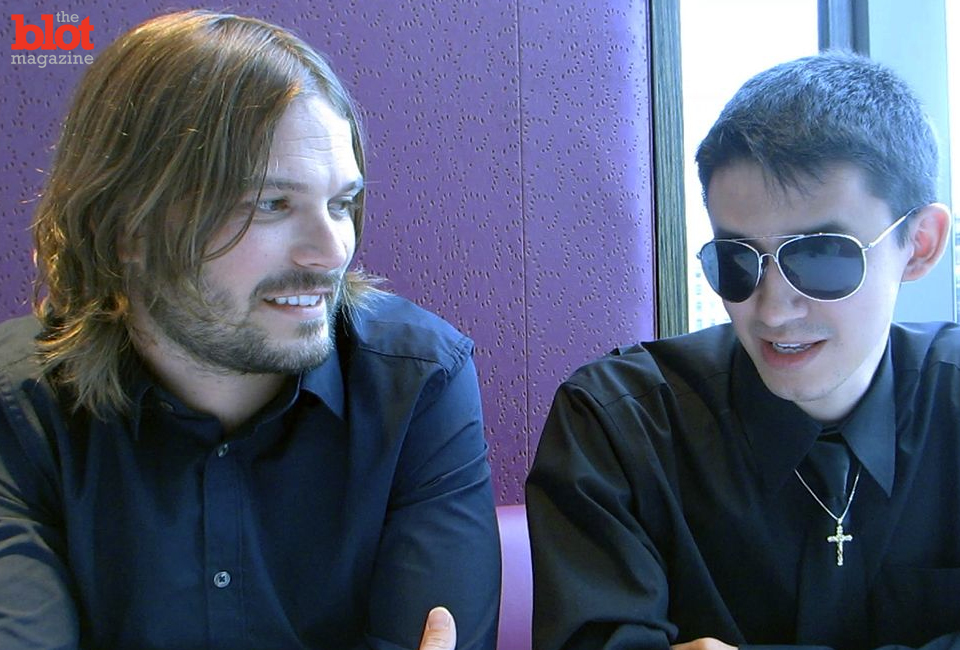
“Keep On Keepin’ On” is the story of Clark Terry, a 93-year-old jazz trumpet player. Terry was Quincy Jones’ first teacher and mentor for Miles Davis who played in both Count Basie’s and Duke Ellington’s bands and knew all of the jazz greats as friends, including Billie Holiday and Ella Fitzgerald. In the 1960s, he became the first African-American staff musician for NBC’s “The Tonight Show.”
The film is also the story of 23-year-old Justin Kauflin. I would call him a prodigy, but he told me he hates that word. What I can say about him is he is an unnaturally gifted pianist who lost his eyesight at age 11. Kauflin suffered stage fright to the nth degree yet, under the tutelage of Terry, Kauflin has thrived. As his star has been rising, Terry runs into health issues and begins to lose his sight. Now, Kauflin gives back to the teacher who taught him so much.

This is a touching and uplifting story of friendship and the history of jazz. “Keep On Keepin’ On” is by first-time director Alan Hicks with support from producers including Quincy Jones. It was a joyful experience sitting down to speak with Kauflin and Hicks in Manhattan.
Dorri Olds: This is an amazing journey you’ve been on. Do you feel like saying, “Pinch me, I must be dreaming?”
Justin Kauflin: Yes [Laughs]. It just keeps growing, from the beginning. It all started with a camera and a microphone.
Alan Hicks: I was a drummer in Clark’s band and a student. That’s where me and Justin met. Afterwards I went back to Australia, and I was asked to do a documentary on mine and Clark’s friendship. That fell through, but it had planted a seed. I was surfing with my mate Ad Hart who is the cinematographer for the film. We were chatting while out on the surf one day, and it came to us to make the movie ourselves. This is our first film, so we started studying how you put together a documentary. We bought a camera and plane tickets and came back to America and just started shooting with Clark. It was a year in when we asked Justin if we could shoot him, too. Thankfully, he said yes.
JK: I just figured nobody would see it. [Laughs]
Justin, how have you learned to deal with stage fright?
JK: After spending time with Clark Terry and getting to know Quincy Jones, being around both of them helped. Clark told me, “You can take that stage fright energy and embrace it, or you can fight it and ruin your performance.” That’s something I think about quite a bit now. I still get stage fright, but I can make the conscious decision to embrace that and use that energy to make a better performance. It’s not going to go away. People ask me, “Is it gone?” [Laughs] No, it’s not gone. It’s going to be there, but how I deal with it is different now. Being aware of the support from somebody like Clark helps a great deal. He believes in me, and that gives me something to think about when I get the butterflies in my stomach. He has made a big difference.
Do you use a mantra or breathing or meditation?
JK: Prayer is always important to me before I perform. That’s a big part of my routine and part of my life. And yeah, I breathe and think about the things Clark has shared with me. I know he’s in my corner. I’ve also realized I’m here to share. The nerves are part of it, but I feel very passionate about sharing, and that’s something positive so you can plow through it.
Alan, how did you put all of your money into a project you didn’t know would succeed?
AH: I just had a gut feeling that we should do this, and me and Ad are positive guys and having Clark believe in us and have faith in us doing something on him that fueled us forward. Another reason was that any minute spent with Clark is jazz history. It’s for an archive. I figured even if we couldn’t finish the film, as long as we get as much of Clark Terry and all his stories on film, that would be a success in itself that people could enjoy in the future. It was about wanting to honor Clark. The way we did it was to work for three months, save up money and shoot for three months then go completely broke. Then work for three months doing odd jobs, or I’d jump on a tour and play drums. Ad went back to Australia and did labor jobs and photography stuff. We’d pool our money. We did a Kickstarter campaign as well in 2011, which we promoted on Facebook mostly. It was right around when Kickstarter had started. Most people hadn’t heard of it when I reached out. That helped us get through a large portion and with the support we got on Kickstarter, we knew people were actually believing in us. I mean, they were putting their own money in to support us. I’m a pretty optimistic bloke, you know, so we just kept going, and then we finished, which I couldn’t believe. [Laughs]
How much did you raise with Kickstarter?
AH: Our goal was to raise $35,000 and we raised $43,000. The majority was small sums like 10 bucks or 20 bucks. That got us through a six-month period of shooting. Without that, I don’t know if we could have finished. I think about the people that helped us every single day. Now, I’m more open to supporting Kickstarter campaigns.
Justin, can you tell me about the jazz legends Clark told you about?
JK: It goes from Ella Fitzgerald, Billie Holiday, Louis Armstrong. He talked about Miles Davis in an endearing way and Quincy Jones. One moment that happened before the filming started was something I’ll never forget. We were at Clark’s house in Arkansas. He gets a phone call, he’s talking and says to the caller, “Hold on a minute, I’d like you to talk to this young man who plays piano.” I get the phone and the guy says, “Hello, this is Oscar Peterson.” [Laughs] One of my favorite records is the “Oscar Peterson Trio + One” with Clark Terry. One of the wild things about Clark is to hear all of his stories about people that are his dear friends. It’s insane.
What did he tell you about Billie Holiday?
AH: She was one of his favorite singers. He used to play with her in the Count Basie band. He said how tough she was. He told one story about a drunk guy in the crowd heckling her. She walked off the stage and knocked him out. [Laughs] There are hundreds of stories like this that Clark told us. He was there. That’s firsthand information. So amazing.
JK: He talked about playing baseball with Ella.
AH: They used to play in Central Park. They’d all be out late, and they wouldn’t go to sleep. They’d meet in Central Park to play ball. Imagine walking through the park and seeing Ella Fitzgerald, Clark Terry, Duke Ellington playing softball in the park.
Are there other stories that didn’t make it into the film?
JK: Yeah, and most of them will be on the DVD.
AK: I’m going to put together a bunch of Clark’s uncut stories for the DVD.
“Keep On Keepin’ On” opens in New York on Friday, Oct. 3 and rolls out nationally through Nov. 7.
Watch the trailer:
Watch excerpts from this interview:
Dorri Olds is a contributing journalist for TheBlot Magazine.





